Can Anxiety Cause Addiction?
Anxiety and addiction are related, although correlation does not necessarily mean causation. Individuals who experience one of the other have a greater probability of developing the other. While anxiety may not be a direct cause of addiction, anxiety can be a contributing factor to the development of a substance use disorder.
At California Centers for Recovery, we work with clients who struggle with a dual diagnosis disorder in order to help them develop strong advocacy and self-management skills to promote healthy living. Through our unique combination of traditional evidence-based programming and alternative holistic healing treatments, our clients can work to manage their mental health in a safe and structured environment designed to meet their specific needs. Contact us today to see how our innovative programming can support you or your loved one!
What is anxiety?
Anxiety is a mental health disorder defined as a phobia or a panic disorder. Individuals who experience anxiety have one of the following reactions: “an inappropriate response to a situation, cannot control the response, or has an altered way of life due to anxiety.” In many instances, individuals with anxiety will struggle with social interactions and personal goal setting.
Individuals who experience anxiety may experience:
- Fast heartbeat
- Chest pain
- Breathing difficulty
- Dizziness
- Panic and fear
- Rapid heartbeat
- Shortness of breath
- Trembling
- A strong desire to getaway
Individuals who experience these symptoms may be prescribed medication by a doctor to mitigate the symptoms. Most often prescribed for anxiety disorders are benzodiazepines which are highly addictive. It’s also important to note that individuals who experience undiagnosed anxiety may self-medicate and become addicted to alcohol or other illegal substances that help reduce anxiety.
How are anxiety and addiction-related?
Individuals who experience anxiety may also have a related addiction disorder. Anxiety and addiction are related to mental health disorders because individuals who experience one have a greater likelihood than others also to experience the other.
Individuals who experience anxiety have a greater risk of also experiencing addiction. Those with untreated anxiety may use drugs or alcohol to self-medicate. Additionally, those with anxiety may be diagnosed and prescribed medication that can be addictive. For example, many individuals with anxiety are prescribed benzodiazepines to calm and help mitigate the symptoms of anxiety. Benzodiazepines are incredibly addictive and can lead to a substance use disorder if they are mismanaged.
Additionally, individuals with a substance use disorder may have a higher than average possibility of developing anxiety as a related symptom. Anxiety can be a side-effect of many addictive medications, and when an individual tries to hide their addiction, they may experience stress and anxiety throughout that process.
Because these two mental health disorders are so often related, it is considered a dual-diagnosis when an individual is diagnosed with both anxiety and a substance use disorder.
What is dual diagnosis treatment?
Dual-diagnosis treatment is a specially designed therapeutic treatment program to support individuals with a mental health disorder in addition to substance abuse. Clients with both disorders require more stabilized and structured addiction treatment than individuals who are suffering from one or the other. Dual-diagnosis treatment is often initially an inpatient residential treatment program that is designed to help clients achieve stability and sobriety through individualized therapy and group treatment.
Dual-diagnosis treatment often combines cognitive behavioral therapy with other traditionally evidence-based programs designed to meet the specific needs of the additional mental health disorder. Clients going through this treatment process will often meet more frequently than clients who are struggling with one disorder or the other.
Dual Diagnosis Treatment in Southern California
Our extensive dual diagnosis treatment program at California Centers for Recovery is designed to support individuals through a structured treatment program. Our relapse prevention programming, self-management, and coping skill development treatments are combined with traditional and alternative mental health programming to help clients develop a stable cognitive basis to build their sobriety on.
Our medical professionals are prepared to support our clients’ needs from detox to treatment. Our individualized programming means that clients receive the exact treatment they need to achieve their goals and develop the necessary skills and strategies to continue successfully after treatment.
We offer more than a recovery program, offer an experience.
© 2021 California Centers for Recovery. All Rights Reserved.

